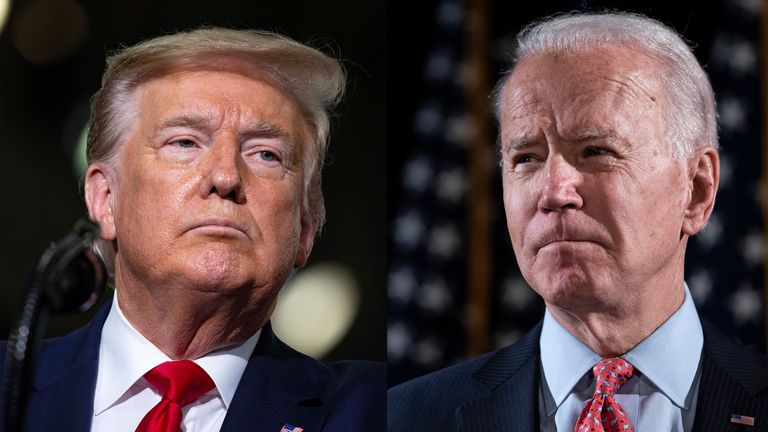 Three former presidents were the star guests for the inauguration last week of Joe Biden as the US’ 46th president.
Three former presidents were the star guests for the inauguration last week of Joe Biden as the US’ 46th president.
Bill Clinton, George W Bush and Barack Obama hugged and mugged for the cameras in open delight that Donald Trump was out of the White House and in exile in Florida. That night, film and rock stars celebrated the moment in front of the Lincoln Memorial, but more in relief than real joy.
Across America’s capital, the movement of people in and out of government that always accompanies the start of a new administration looked more like a return of the good old days than a fresh new dawn. Many of Biden’s top appointments are familiar faces from the Obama administration.
Trump’s gone and the new regime hopes he’ll be immediately impeached and forgotten. Yet, his ghost is haunting US policymaking and will continue to do so for the foreseeable future.
Trump’s place in history will be secured by his willingness to break conventions. He dismissed the advice of most economists and in a year tripled the US budget deficit to 15 per cent of GDP.
Biden says he couldn’t be more different but his first move was to announce a $1.9trn increase in government expenditure. The justification is the need to insulate more Americans from the economic impact of Covid and contain its spread. The spending programme is also designed to address longstanding Democrat objectives, as was made clear in a statement made on her first day of her term in office by Biden’s Treasury Secretary Janet Yellen:
‘If you have listened to President Biden speak over the past few weeks, you have heard him talk about “four historic crises.” COVID-19 is one.
“But in addition to the pandemic, the country is also facing a climate crisis, a crisis of systemic racism, and an economic crisis that has been building for fifty years…long before COVID-19 infected a single individual, we were living in (an economy) where wealth built on wealth while certain segments of the population fell further and further behind.”
There’s an ideological component to Biden’s economic policies. But there’s also a political one that might be a larger influence. The Democrats won last November by promising they couldn’t be worse than Trump. But there was none of the joy that spontaneously exploded when Obama was first elected 12 years previously. The anti-Trump coalition is fragile and could fracture if Biden doesn’t deliver.
The nightmare keeping the restored US political establishment including many veteran Republicans awake at night is the implications of Biden failing and Trump’s familiar voice telling his followers “I told you so.”
…The great financial crisis confounded economists. Covid’s confused them. But four-years of Trump have corroded confidence in their own discipline…
It’s that prospect almost as much as Covid that’s overriding conventions of economic thought that have shaped US policy for more than 30 years.
The silence among the ranks of those that once bruited the need for sound money and balanced budgets speaks volumes. The great financial crisis confounded them. Covid’s confused them. But four-years of Trump have corroded confidence in their own discipline. Economists once prided themselves on their capacity for independent thought. Today, they move opportunistically with the conventional wisdom they once challenged and often derided.
The IMF’s Global Financial Statement update released on 27 January reflected the intellectual crisis at the heart of contemporary economics.
Confronted by the bizarre spectacle of US share markets hitting record highs in the depths of the worst economic downturn since the 1930s, the IMF managed the following feeble utterance:
” Yet, despite persistent uncertainties surrounding the economic outlook, investors appear to remain confident about growth prospects in 2021, betting that continued policy support will offset any possible near-term disappointment.
The much discussed disconnect between financial markets and the economy persists. Despite the recent rise in US long-end rates, market participants point to expectations of very low rates over coming years and upward revisions in earnings expectations since the vaccine announcements as justification for the market rally.”
That was followed by further technical elaborations that look like flannel. It was less than might be expected from the world’s greatest economists at a moment of extraordinary economic change.
The fact is that policymakers globally and in Washington in particular have junked decades of IMF policy prescriptions — particularly about the need for sustainable fiscal policies — which were used mainly to torture governments of low income nations.
The IMF’s forecast that monetary policy is anticipated to remain accommodative for years to come is based on the recognition that what it says counts for little any more.
A withdrawal of the fiscal support Trump started and Biden’s continuing will precipitate a market crash at least as bad as the one that happened in 2008. It would destroy the savings of millions of Americans who have invested in equity markets made riskless by more than a decade of rule-breaking government intervention.
Nothing would do more to help the comeback of Trump or his equivalent in four years time. And that’s why the great Covid stock market boom will just go on and on and on.